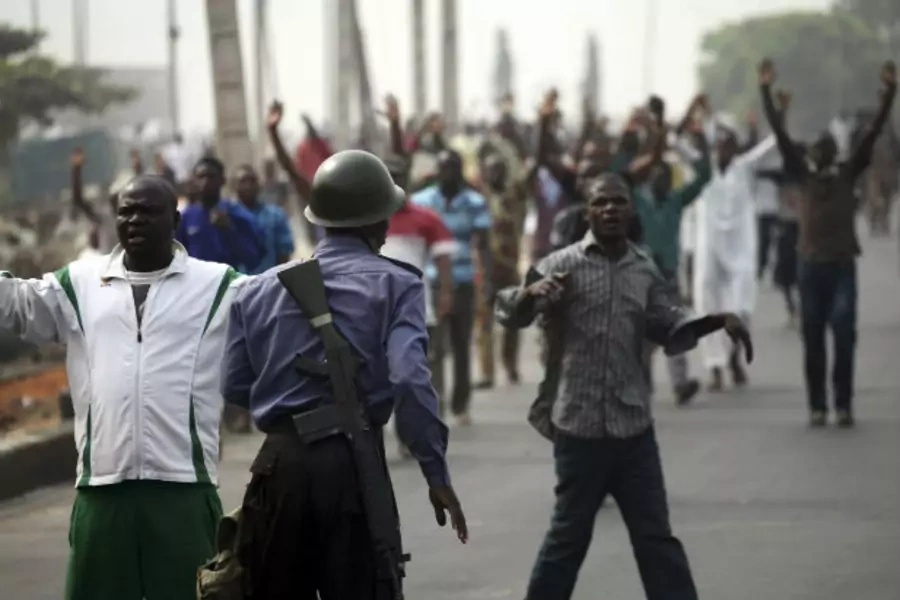More on:
This is a guest post by Jim Sanders, a career, now retired, West Africa watcher for various federal agencies. The views expressed below are his personal views and do not reflect those of his former employers.
In his later years, American journalist Lincoln Steffens looked back with skepticism on his work. His muckraking essays in McClure’s magazine exposed government corruption, but he doubted that they contributed to enduring change. Revolutions in Mexico and the Soviet Union impressed him and seemed more effective than reform in advancing society. With respect to them he famously commented, “I have seen the future, and it works.”
Elements of Nigeria’s elite seem to have caught a glimpse of a revolutionary future, too. In years past, deteriorating conditions in the country gave rise to coup talk. Today, revolution is openly discussed. This is new.
Former President Obasanjo recently stated that unless youth unemployment is addressed, “Nigeria will see a revolution soon.” Tunde Bakare, a Latter Rain Assembly pastor and Muhammadu Buhari’s running mate in the 2011 presidential election, picked up the theme, adding that “President Obasanjo and others responsible for the yawning gaps between the haves and have-nots in the country would not be spared in the impending revolution.”
Bakare included religious leaders engaging in conspicuous consumption at the expense of their flocks among those who “would not escape the revolt of the masses.” Most interestingly, he suggested that, “if the revolution does not begin in the church, it cannot spread; if it does not begin in the mosque, it will not spread, because they control the population.” Earlier this year, Buhari and former Kaduna State governor Balarabe Musa both warned of a revolution.
If a revolution occurs in Nigeria what would it look like? According to Professor John Voll, revolutionary models profoundly changed with the Arab Spring. Now they are: non-ideological and pragmatic, use the blogosphere as an arena of conflict, utilize flash mobs as a weapon, and include women as a dynamic element. Crane Brinton is out, Voll says, “We’re in a new revolutionary mode.”
Perhaps a Nigerian revolution is already underway. While Maiduguri is not the Vendee, it is an epicenter of Boko Haram’s violent opposition to vestiges of the government. Expansion to Sokoto, where the sect wishes to transfer religious authority from the Sultan to itself, would represent fundamental change to the northern power structure.
Ongoing communal violence in the country featuring flash mobs, as well as growing popular rage against corruption, reflect Steffens’ belief that “long before the bullets dominate the landscape, the seeds of revolution are planted by rapacious, corrupt, and inept governments that refuse to change.”
More on:
 Online Store
Online Store
